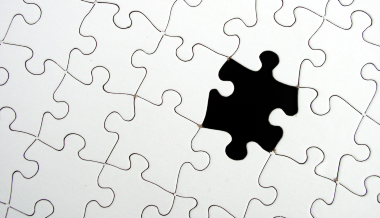The Lifehack.org community rose to the challenge, offering a variety of thought-provoking posts and comments that hopefully gave us all something to mull over before we embark on yet another round of system-tweaking. In chronological order, here are all the posts from Lifehack.org this month that set out to answer the question, “What’s missing in today’s productivity systems?”
My Redundant Productivity System (Joel Falconer) While “touch it once” might be a good rule for inbox processing, having multiple, redundant copies of your crucual work and reference documents is an important part of staying productive — even when (especially when) disaster strikes. 10 Tips for Improving Your Appointment Setting Skills (Thursday Bram) Setting an appointment means more than jotting a time and name in your calendar; here’s 10 things to think about to avoid wasting time before or during scheduled appointments. Why doing nothing may sometimes be the best action of all (Adrian Savage) Your brain is wired to act, even when the facts aren’t all in. Slow down and make sure you have all the information you need before you act — and consider whether doing nothing might be your wisest course of (in)action. Personal Productivity in the 21st Century (Dustin M. Wax) In their attempt to reduce everything to discrete chunks of doing, today’s productivity systems don’t leave space for the kinds of work that characterize most of our jobs today. How can we open more space for creativity, reflection, and just being? The Gaps in the Standard Address Book (Thursday Bram) 7 ways to improve the off-the-shelf address book or contact management program. Simplify Your Information Intake (Joel Falconer) Productivity starts with the things we choose not to do — and limiting how much email and web content we handle, and how we handle it — can go a long ways toward creating more productive days. Audiobook Review: David Allen’s “GTD > Weekly Review” (Dustin M. Wax) The weekly review is far and away the red-headed stepchild of David Allen’s GTD methodology. Arguably the most important part of the system (the thing that makes it a system), the weekly review is the most likely part ot be skipped or minimized. Allen’s new 3-CD set offers help getting back on track and rethinking the role and importance of the weekly review. The Real Trouble with Productivity (Lisa Gates) Productivity as an aim in and of itself is an empty thing, indeed. True productivity lies in the ways we make meaning in our lives, and is grounded in a vision worth pursuing. What’s yours? Small Projects Generate Good Feelings (Karl Staib) Productivity needn’t be only about marketing campaigns and writing best-sellers; little projects give us the opportunity to plan, carry out, and finish, creating satisfaction in a job well done that will carry over into the rest of our lives. There’s More to Productivity Than Time Management (Dustin M. Wax) Being productive doesn’t mean getting the most stuff done in the least amount of time, it means doing the necessary stuff as efficiently as possible so we can focus on the things that add meaning to our lives. Make time for the most useless thing you do! Self-Discipline: The Foundation of Productive Living (Joel Falconer) “Self-discipline is the power to act on ideas.” Learn to get yourself from thought to action — especially where all this productivity talk is concerned! What are the aids for increasing GENUINE productivity? (Adrian Savage) There are literally hundreds of software products out there that claim to increase productivity, yet all of them do basically the same thing: categorize todo lists. What might a program that really increased productivity — that helped us do more or better in the same or less time — look like? Look for the Solution within the Problem (Paul Sloane) Systematic Inventive Thinking is a way of thinking about problems that sees a problem as a chain of unwanted effects and seeks to break the chain. It offers inventive solutions to problems where resources are limited. 10 HARD Ways to Make Your Life Better (Dustin M. Wax) Too many people promise an easy way to wealth, fame, and happiness. Doing something hard, even if you fail, is often far more satisfying — and truth be told, probably a lot more certain. Change Your Day, Change Your Life, Change the World: A Review of “New Day Revolution” by Sam Davidson and Stephen Moseley (Dustin M. Wax) One way to create more meaning is to direct your actions towards changing the world. Davidson and Mosely’s book offers a few ideas to help you start bringing your day-to-day activities in line with your vision of a better world. Go on a High-Information Diet (Dustin M. Wax) The key to productivity isn’t to minimize the information you take in — you need as much of that as you can get! Rather, the key lies in reducing the amount of superfluous junk, to go on the intellectual version of a high-fiber, low-fat diet. Getting to Good Enough (Dustin M. Wax) Get things done by accepting less than perfection. 80% good is better than 100% nothing. Productivity maybe . . . but for what purpose? (Adrian Savage) By every emasure, we’re more productive today than a generation ago — yet we have less leisure, less connection, and less happiness. Why? For most of us, it’s because the time we free up weighs on us, and we seek desperately to fill it with even more work. There are other choices! How to Maximize Efficiency by Grouping Tasks (Joel Falconer) An antidote to “Cranking widgets”? Tips on thinking and working at the “big picture” level by grouping tasks. Welcome Failure (Paul Sloane) If you want innovation, you need to learn to embrace failure.
There you have it. 20 takes on what it might mean to be productive in today’s world and what our systems fail to take into account. What do you think? What’s missing in your system?
